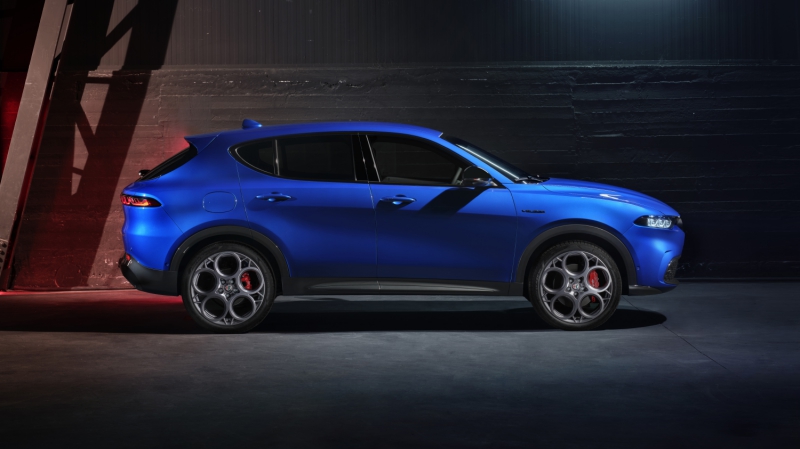Like it or not, the tiny Alfa Romeo Tonale crossover was going to happen. Like it or not, it will be appealing to hip urbanites instead of the traditional Alfisti. And, whether you like it or not, it will sport some “disruptive” non-driver related tech to get it trending.
In the Tonale’s case, that fad it is tapping into is non-fungible tokens or NFTs.
What is NFTs?

You would’ve heard about NFTs from news about people paying ungodly sums of money for digital images of monkey characters. Don’t worry that description sounds less bananas than the craze fuelling this emerging technology.
For those living outside Lord Zuckerberg’s Metaverse, NFTs are “unique digital assets” that operate off the Ethereum blockchain. Through a decentralised online ledger network, an NFT’s data originality, proof of ownership, and integrity are verifiable and unchangeable. Unlike duplicable normal digital media, the blockchain network secures an NFT ownership and its originality.
Now that sounds like internet magic and computer voodoo, but the technology underpinning NFTs can be beneficial for documentation and verification. And this is what Alfa Romeo intends to achieve with its NFT technology on the Tonale.
How will the Alfa Romeo Tonale NFT work?

The NFT technology in the Alfa Romeo Tonale, will be used for recording the vehicle data for future reference. Since the data is unmodifiable, it serves as a certificate that guarantees the vehicle’s overall condition. Monkey business and money laundering aside, this is probably the best utilisation of blockchain technology.
It is no secret that automakers tend to put novelty before practicality in implementing emerging technologies. However, in Alfa Romeo’s case, they are putting it to the right use for once.

Keeping maintenance and operation records of cars have never really changed over the decades. Most owners prefer keeping their records in a physical ledger of receipts and dealership stamps. That is if the owners themselves even bother to keep tidy records.
Keeping every Tonale’s record on a blockchain system would alleviate the need for that. Alfa Romeo also reason that having an accurate verifiable record will help maintain the vehicle’s residual value.
Don’t go fixing what isn’t broken

Arguably, utilising the blockchain network for vehicle record-keeping is unnecessary. As that old saying goes; if it isn’t broken, don’t fix it. Furthermore, is there a need for such accurate record-keeping in an era of extended service intervals or vehicle leasing? Much less for a trendy crossover for people looking for more social media clout than driving enjoyment?
Presumably, the Alfa Romeo Tonale NFT addresses the brand’s reputation for abysmal resale values. However, considering that much of its ill-will is down to its indifferent dealership network, could blockchain overturn its notoriety? That is highly doubtful.

Nevertheless, the technology is heading in the right direction, even if the Tonale becomes as disposable as another trending meme. This technology might find more value in commercial vehicles where accurate record-keeping is important. Till then, like it or not, this NFT business is nothing more than garnishing on another ubiquitous “trendy” crossover.

